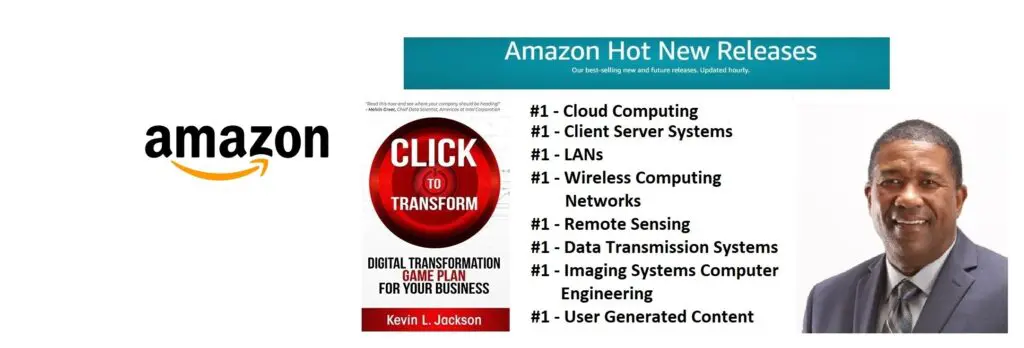Twitter Feed
“Cash for Clunkers” Should Have Used the Cloud!
Rich Bruklis wrote an excellent essy on how the government missed a perfect opportunity to use cloud computing. In “Cloud Opportunity Missed” he writes: “It appears that the voucher system…
US Navy Experiments With Secure Cloud Computing
This week in San Diego, CA the US Navy held the initial planning conference for Trident Warrior ’10. The Trident Warrior series is the premier annual FORCEnet Sea Trial Event…
GSA To Present On Cloud Initiative at NCOIC Plenary
A General Services Administration (GSA) representative is now scheduled to provide a briefing on the agency’s cloud computing initiative during a “Best Practices for Cloud Initiatives using Storefronts” session on…
FAA CIO Focuses on Cybersecurity
During this week Federal Executive Forum, FAA CIO Dave Bowen mentioned protection against software vulnerabilities, wireless intrusion and website vulnerabilities as his top cybersecurity priorities. As the Assistant Administrator for…
DHS Asst. Secretary Addresses Cybersecurity Priorities
Greg Schaffer, Assistant Secretary for CyberSecurity & Communications for the US Department of Homeland Security, sees Trusted Internet Connections, EINSTEIN, and front line defense of the nation’s networks as top…
US DoD Chief Security Officer on Cybersecurity Priorities
In a Federal Executive Forum interview, Robert Lentz, Chief Security Officer for the US Department of Defense, highlighted the departments cybersecurity priorities. Mr. Lentz is the Deputy Assistant Secretary of…
Twitter Under Denial of Service Attack
Multiple sources are reporting that Twitter continues to be under a denial of service attack. Some are speculating that this represents the power of a coordinated bot network attack. For…
NCOIC Holding Full Day Cloud Computing Session
The Network Centric Operations Industry Consortium (NCOIC) will be holding a one-day cloud computing session during its plenary meetings, 21-25 September at the Fair Lakes Hyatt in Fairfax, VA. A…
Sevatec a New Player in the Federal Cloud Computing Market
Just in time for the new Federal Cloud Computing Storefront, Sevatec, Inc. is announcing the development of a toolkit to help federal agencies transform their enterprise architectures to cloud computing…
GSA Releases Cloud Computing RFQ
Following through on a much anticipated action, GSA released their Cloud Computing Request For Quotation (RFQ) today. Cloud computing is a major part of President Obama’s reform effort and this…
The Achilles heel of every transformative business model is their reliance on ever increasing amounts of data that need to be transported quickly across wide area networks and processed at edge computing end points. To meet this expected demand, the global telecommunications industry is rapidly moving toward a future in which networks must have the agility, flexibility, and scalability to deliver aggregated capabilities through fully programmable networks.
Since the late 1970s, new generations of technology and wireless standards have been introduced every decade through the current transition between 4G and 5G capabilities. Limited data capability was provided using circuit-switching under the European Telecommunications Standards Institute (ETSI) Global System for Mobile Communications (GSM) standard. Improved data rates were brought to the market in the late 1990s by using 2.5G and 2.75G technology, which were named GPRS (general packet radio service) and EDGE (enhanced data rates for GSM Evolution). The introduction of the LTE network later set the standard for high-speed wireless communications on mobile devices and data terminals.
Historically, sovereign nations have managed their telecommunications networks as national assets.
The political negotiations that drove that history led to underlying technological choices and today’s
heated international competition around 5G network deployments. In fact, western nations fear that China’s Huawei Technologies’ dominance of 5G technology could give the Chinese government backdoor access to Western mobile networks and the application. This international competition will determine the availability of specific technologies and telecommunications resources in each geographic region.
For 5G networks, data transfer speed, volume, and latency depend on the spectrum bands used and the network usage context (fixed or mobile). MmWave spectrum is a high-frequency technology that lies between 30 GHz and 300 GHz. It is attractive because its shorter wavelengths create narrower beams, which provides better resolution and security for data transmission. A 5G mmWave system requires a significant infrastructure build but could reap the benefits of data transferred at up to twenty times the speed of current 4G LTE networks. MIMO (multiple-input and multiple-output) increases throughput by using high-quality signals to receive multiple data streams at a reduced power per stream. Massive MIMO can multiply the capacity of a wireless connection without requiring more spectrum, which could potentially deliver a fifty-fold increase in the future.
These network capabilities are substantially superior to previous wireless technology generations and have subsequently set off the rapid development of many new application requirements and functions. With this new infrastructure, application components are placed in an optimal location to use compute and data storage services of the distributed cloud. The distributed cloud approach increases capacity, availability, and coverage while also limiting data transfer requirements. A distributed cloud solution enables edge computing by using micro and small data centers. Application developers must learn how to exploit these new design requirements to deliver ever increasing value to their end users.
Learn more about digital transformation innovation: pick up a copy of my new book, Click to Transform!Â

Cloud Computing
- CPUcoin Expands CPU/GPU Power Sharing with Cudo Ventures Enterprise Network Partnership
- CPUcoin Expands CPU/GPU Power Sharing with Cudo Ventures Enterprise Network Partnership
- Route1 Announces Q2 2019 Financial Results
- CPUcoin Expands CPU/GPU Power Sharing with Cudo Ventures Enterprise Network Partnership
- ChannelAdvisor to Present at the D.A. Davidson 18th Annual Technology Conference
Cybersecurity
- Route1 Announces Q2 2019 Financial Results
- FIRST US BANCSHARES, INC. DECLARES CASH DIVIDEND
- Business Continuity Management Planning Solution Market is Expected to Grow ~ US$ 1.6 Bn by the end of 2029 - PMR
- Atos delivers Quantum-Learning-as-a-Service to Xofia to enable artificial intelligence solutions
- New Ares IoT Botnet discovered on Android OS based Set-Top Boxes
